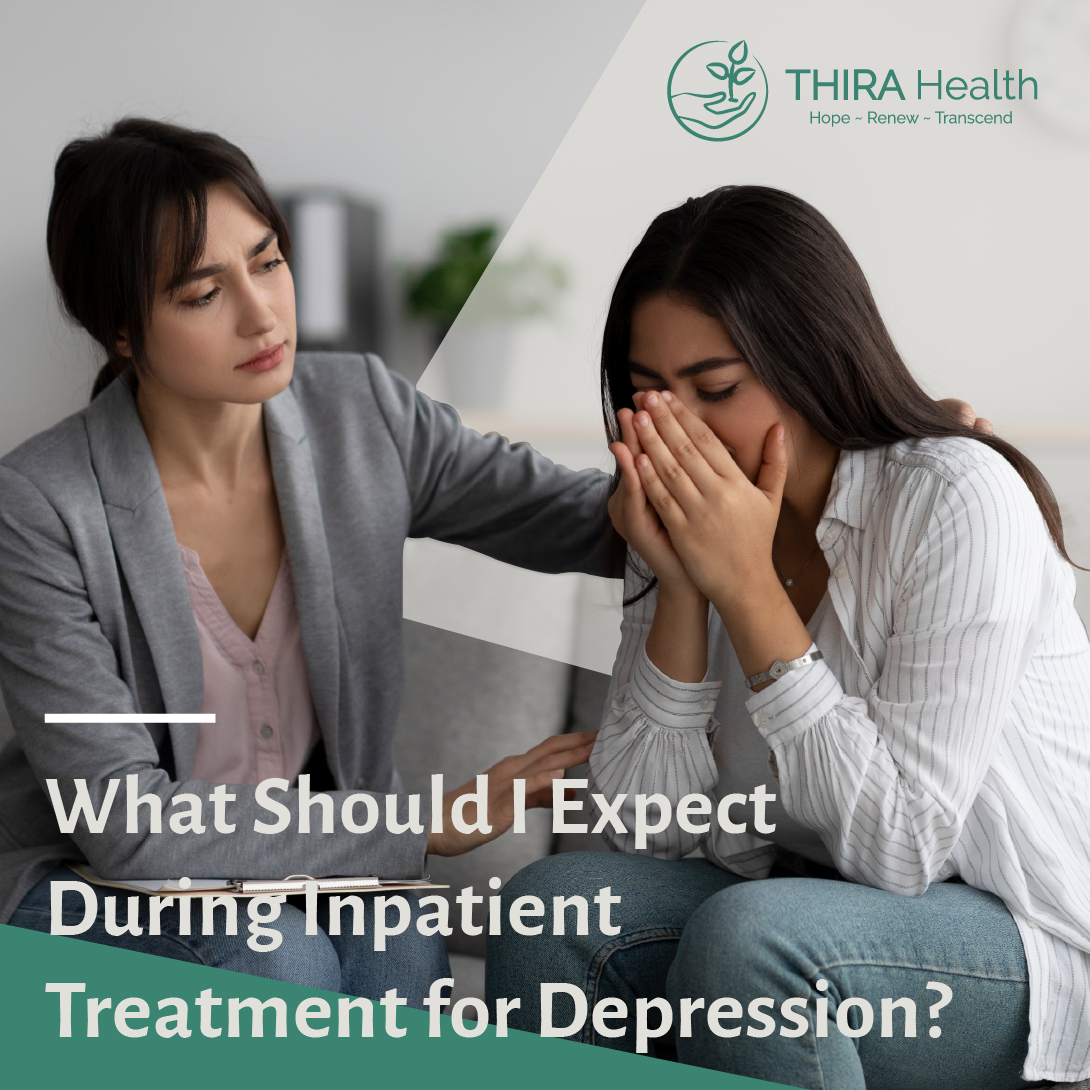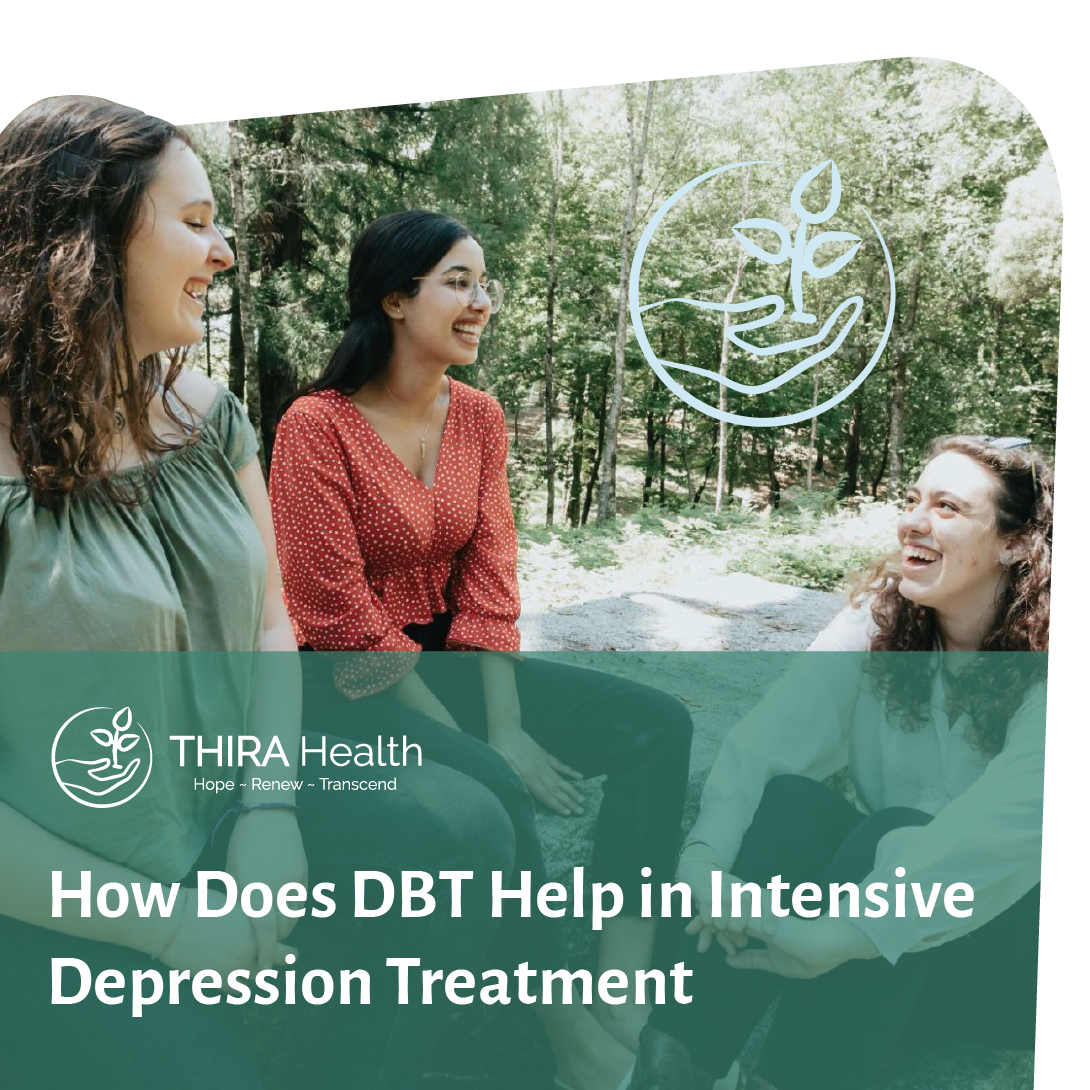By Dr. Mehri Moore
Since founding THIRA Health, a clinic in Bellevue, Washington, offering intensive, focused, and individualized mental health treatment for women and girls grappling with anxiety and depression, one of the most frequent questions I receive is, “Why a women-focused facility?”
Though there are a number of convincing arguments to be made in response to this question, in my view the answer comes down to the very nature of mental illness itself. After spending decades working with patients suffering from eating disorders – some 90% of whom experienced a co-occurring psychiatric disorder like anxiety or depression – I realized that the underlying issues plaguing a majority of my female patients revolved first and foremost around the development of the self.
The Double-Bind
As I’ve written before, women in the United States are exposed to detrimental, often contradictory social messaging from the time we are quite young, messaging that is derived – not always consciously or intentionally, mind you – primarily from prevailing patriarchal power structures. To be sure, we’ve made considerable progress since the ’60s, but we’ve yet to silence the kind of dominant social narratives that encourage women to be beautiful, charming, and, in some circles, even demure. What is helpful to note here is the double-bind – be “feminine” in a traditional sense but also be strong and demand equality if that’s what you desire – with which only women are forced to contend.
Ultimately, this inherently unresolvable double-bind leads many people who identify themselves as female to the conclusion that we are simply “not good enough.” If other conditions are present – whether a genetic predisposition, a past trauma, or a lack of social support – these feelings of inadequacy can easily devolve into serious mental health issues. When, for whatever reason, a woman calls her own selfhood into question, she becomes vulnerable to maladaptive coping mechanisms like eating disorders or substance abuse. Unfortunately, the hyper-vigilance required to refrain from these behaviors can end up leading to anxiety, and the frustration with this entire process can quickly transform into the kind of despair that presages clinical depression.
The Case for Women-Focused Facilities
Which returns us to our original question, “Why a women-focused facility?” At THIRA we are dedicated to working through the complicated, deep-seated root causes of mental illness that, as outlined above, often stem from a compromised sense of self. In order to do so, we must create an atmosphere where our patients have access to a fully supportive community, which, in part, entails a cohort of individuals who have faced similar challenges from their social relationships and broader social environs.
Our goal is to facilitate a comprehensive rehabilitation of our patients’ selves, but doing so within a microcosm of society – that is to say, a mix-gendered environment – can become very tricky very quickly. Group therapy, for instance, plays an important role in many of our patients’ recovery processes, but successful group therapy depends upon a baseline experiential homogeneity among its participants. A good group therapy setup offers an environment in which participants feel comfortable talking about their feelings, struggles, and experiences, and the fact of the matter is that establishing this level of comfort requires a trust that everyone present will at least generally understand where you are coming from. For a variety of reasons, ranging from past physical or emotional abuse at the hands of a man to the simple ineffability of the social “other’s” experience, many women will never feel comfortable enough around men to speak openly and honestly about their struggles with their sense of self.
Fostering Community Among Women
All THIRA patients inherit a post-program community by continuing to share their progress and challenges with their cohort. The foundational community established during each program is unique in that it builds women up, together, rather than the societal norm of mutual distrust that often occurs. At THIRA, these groups that walk together in their respective programs become a key piece of each patient’s sustained recovery.
Patriarchal pressures and messaging are not going to disappear overnight – and our goal at THIRA is not to encourage our patients to bury their heads in the sand, so to speak – but oftentimes the first step in regaining one’s mental health is extricating oneself from the double-bind described above. To be frank, helping women take this first step is much easier in women-only facilities. This is not a diminishment of the struggles faced by millions of American men, nor is it an underhandedly patronizing statement on the fortitude of our female patients. It is simply, in my professional opinion, the most effective approach to fostering sustainable recoveries for the 21.3% of American women who will experience a major depressive episode at some point in their lives.






